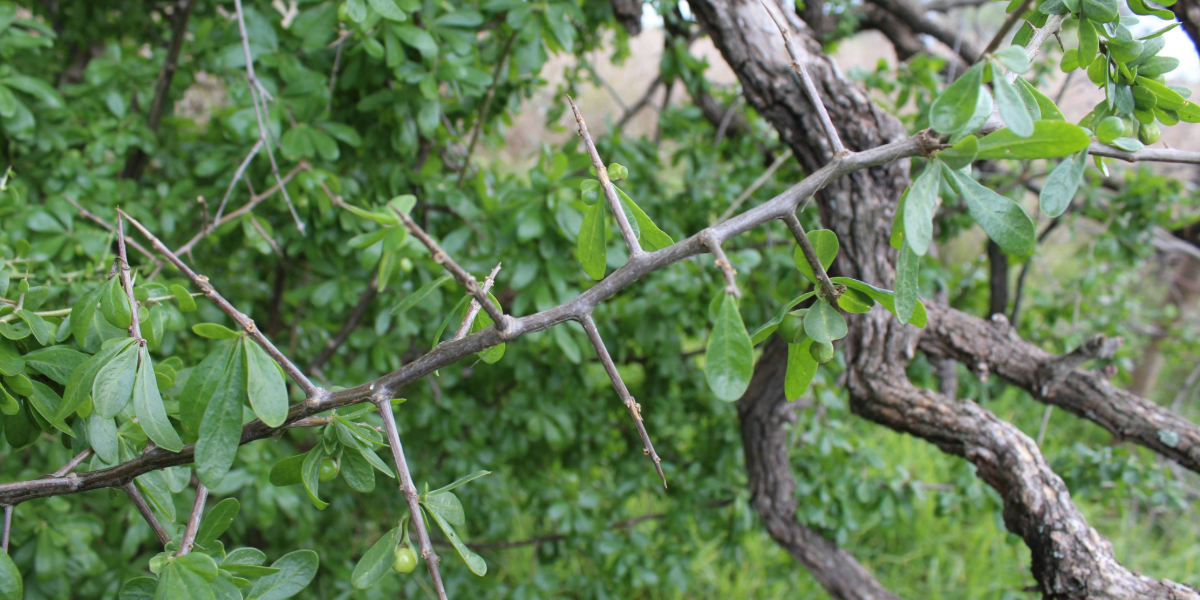Land managers are being reminded to be on the lookout for presence of African boxthorn “lycium ferocissimum” on their land. African boxthorn is a very thorny bush that can restrict the movement of humans and most animals.
African boxthorn can look minimal in numbers but if left, plants become bigger and stronger, producing viable seed. Birds spread the plant’s many seeds, usually depositing them under trees resulting in new plants germinating in shaded areas. As plants grow in size they take over the shaded area, denying access to livestock, and creating the perfect harbour for rabbits, foxes, feral cats and pigs.
In addition to large thorns which can injure livestock, is a host for pest insects including fruit fly, tomato fly and house fly and invades pastures, roadsides, reserves, remnant bushland and waterways.
Liverpool Plains Shire Council Authorised Biosecurity Officer Mike Whitney urges all landowner/managers to consider planning and undertaking a control program for African Boxthorn this season.
“Recent rain presents a window of opportunity for effective control work to be undertaken on African boxthorn.”
“While severe frost can affect the plant’s ability to take chemical in, however because they generally grow under tree canopies they are often protected so spraying can be effective.”
“As a general rule, if you bump the branches of the plant and you notice leaf fall it is not an optimal time for herbicide application, however pulling the plants out making sure to get all the tap roots is still an option.”
African Boxthorn has been weed risk assessed and is listed as a priority weed for the whole North West region. It has also been declared as a Weed of National Significance (WoNS). The criterion is based on its potential, to spread further, its economic, environmental and social impact.
The declaration highlights the need for all landowners /managers, to renew their weed control commitments, particularly for widespread weeds that display these qualities. This will help protect our natural environment and primary production industries.
Landowner/managers should refer to the NSW DPI website NSW Weed Wise at https://weeds.dpi.nsw.gov.au for current permits and registered chemicals for weed control or consult the NSW Weed Control Handbook 2018 7th Edition for chemical options.
Like what you’re reading? Support New England Times by making a small contribution today and help us keep delivering local news paywall-free. Support now


